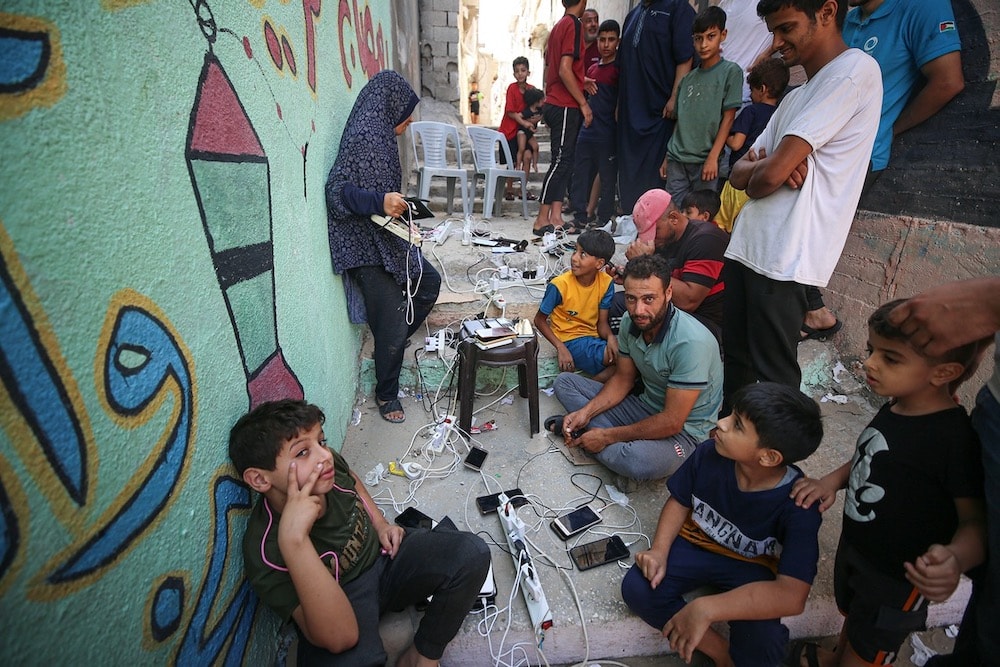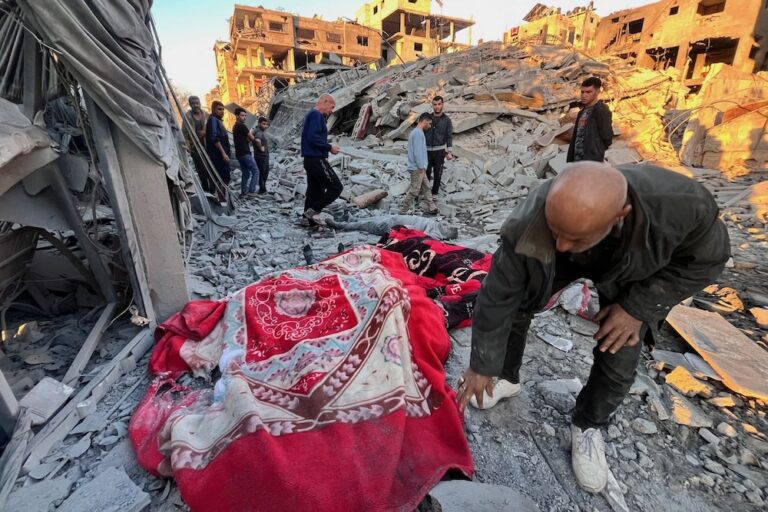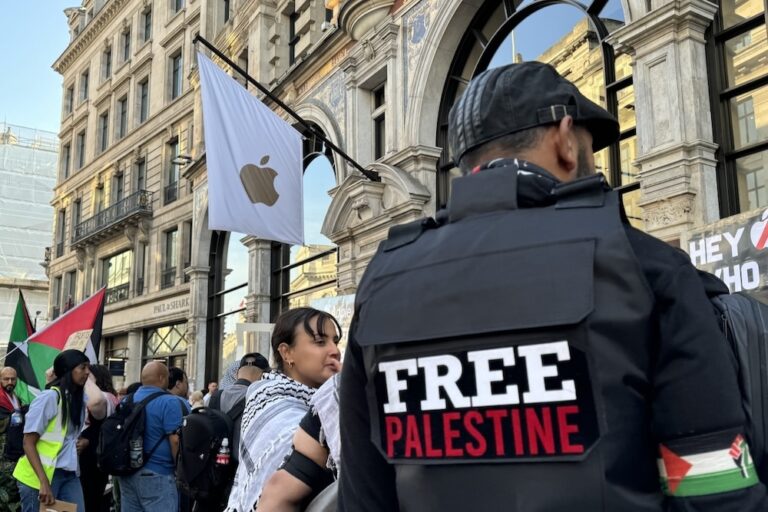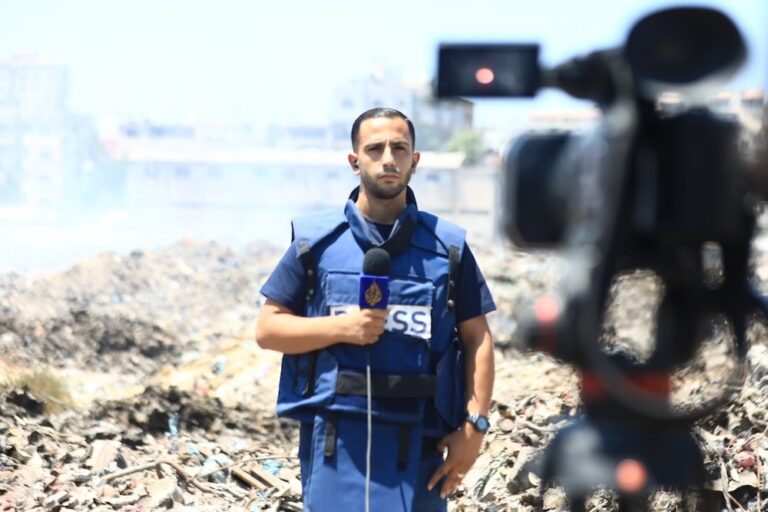Reporters, journalists, human rights defenders, and news agencies have been relentlessly targeted, leaving civilians to document the war via social media.
Ed. Note: At the time of publishing this piece, we at IFEX are bearing witness to the atrocious escalation of violence in Palestine and Israel. In this worrisome context, we express our firm solidarity with IFEX members MADA, 7amleh, I’Iam and Visualizing Impact, and with our colleagues throughout the region, as the consequences of the conflict spread beyond their borders.
This statement was originally published on aadr.network on 20 October 2023.
The MENA Alliance for Digital Rights and other civil society organizations condemn, in the strongest terms, Israel’s targeting of the means of communication and access to information in Gaza. We are deeply alarmed by Israel’s cutting-off of civilian telecommunication infrastructure, internet, electricity, mainstream media, journalists, and human rights defenders.
Israel is currently holding 2.3 million Palestinians captive in Gaza, amid a near-total internet and power blackout. In less than two weeks, Israeli airstrikes have killed more than 3,500 civilians, injured more than 12,000, and displaced over one million people. For the past 16 years, Israel has imposed a blockade on Gaza, depriving people of their fundamental rights. Over the past 12 days, this blockade has been weaponized to deny Palestinians access to food, water, medical aid, electricity, and the internet. Denying people humanitarian aid during a siege is a war crime.
Since the 1993 Oslo Accords, Israel has maintained control of the occupied Palestinian territory’s telecommunications infrastructure, denying Palestinians their right to access safe, affordable, and quality internet, including limiting access to 2G mobile data technologies in Gaza and 3G in the West Bank. During its military offensives on Gaza in 2008, 2011, 2014, and 2021, the Israeli occupation repeatedly bombed vital internet infrastructure, causing complete internet blackouts.
During the recent escalation, Israel has targeted civil telecommunications infrastructure to limit Palestinians and international media from broadcasting its atrocities and crimes against humanity happening on the ground. Internet outages and disruptions have been documented in Gaza since the start of Israeli bombing, as reported by the Internet Outage Detection and Analysis and by the #KeepitOn coalition. Israel has dropped more than 6,000 bombs on Gaza, targeting power and internet infrastructure, using white phosphorus against civilians, and blocking the entry of vital aid such as food and medical supplies. Without electricity, the internet, or basic Information and communication technology (ICT) services, people in Gaza cannot access life-saving information about which areas are under attack or where they can find medical supplies and aid, nor can they connect with families and loved ones. They are cut off from the world.
In a war context, access to the internet is a fundamental enabler not only of personal and communal safety, but also of ensuring that human rights violations and war crimes are recorded and reported. Freedom of expression related to Palestine is currently in crisis, from tech platforms’ policies and practices censoring related content, to targeted attacks on and killings of journalists. The internet must be kept on to prevent this crisis of expression being exacerbated further. In Gaza, access to the internet, communications, and information can be the difference between life and death, just as much as vital necessities of food, fuel and water. Reporters, journalists, human rights defenders, and news agencies have been relentlessly targeted, leaving civilians to document the war via social media.
The MENA Alliance for Digital Rights and undersigned organizations strongly condemn the destruction of telecommunications infrastructure in Gaza, which prevents Palestinians from accessing life-saving information. We demand an immediate ceasefire and the immediate restoration of internet connectivity in Gaza, and we call for an end to the targeting of civilian telecommunications infrastructure.
We call on the international community to take all necessary steps to support the immediate restoration of telecommunications and other essential services in Gaza and any other affected areas, and to ensure that international and humanitarian law are respected.



